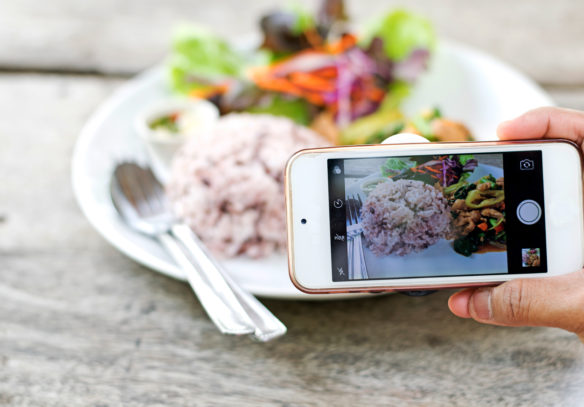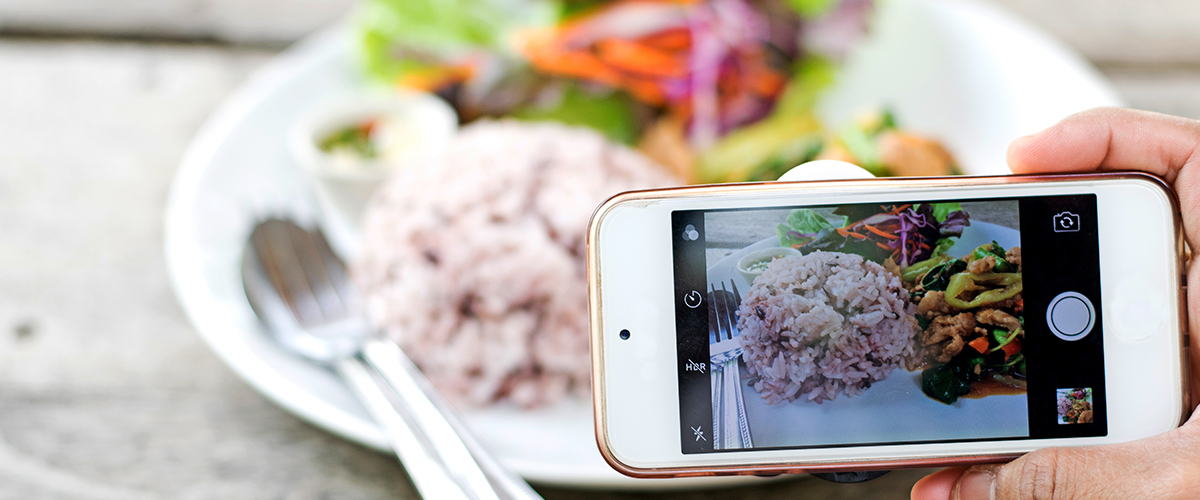In a culture where it’s easy to be plugged into work and social media 24/7, many of us are sitting down to meals with a fork in one hand and a phone in the other. While keeping up with current events and friends is important, it doesn’t need to be at the expense of your health. If you often find yourself so distracted during a meal that you look down at your plate and wonder what exactly happened to all that food, you might want to try mindful eating.
The good news is that you can feel more satisfied than ever if you put yourself on a “distraction-free diet.” One finding – within a review of 24 studies that looked at how distraction and attentiveness influenced eating behaviors – was that a distracted eater ate more not only during the distracted meal, but also had a greater intake later in the day.

“Taking time to appreciate these aspects of food while eating a snack or meal can help you better understand when you are full. It will also help you to eat slower which will aid in digestion,” says Martha Green, Aramark dietitian at Clemson University. “Focus on the nutrition and flavor behind every bite to avoid mindless eating. Each food is unique in that it offers different nutrients, flavors and textures,” adds Martha.
By eating mindfully – consuming food with deliberate focus and limiting outside interference – you may be able to set up your present and future self to effortlessly eat less, and enjoy your food more. Wondering where to start? Here are some tips from Martha on how to incorporate mindful eating and cut down on distractions:
1. Start with one “mindful” meal a day. Rather than putting too much pressure on yourself, commit to picking one meal a day to be your more mindful self – sit down, eat slowly, and really focus on enjoying your food.
2. Avoid eating out of a package. Follow the recommended serving size on the snack’s nutrition panel. This way you will avoid eating excess calories while also experiencing the flavor, texture and taste.

3. Try to plan ahead for your meals. Intentional meal prepping can also help to reduce mindless eating. Instead of throwing together a meal last minute, you can plan a meal for yourself, family or friends that encompasses all food groups. The meal does not have to be extravagant. The key is to incorporate a variety of nutrients, textures and flavor profiles. Remember to enjoy every bite!
4. Indulge in a guilt-free distraction. If you find being unplugged a distraction in itself, give yourself a few guilt-free minutes to read an article or scroll through Facebook before you sit down to eat. With your mind at ease, you can better focus on your meal.
5. Consider keeping a food journal. Research shows that simply writing down what you eat and when you eat, aids in weight loss efforts. It also makes you more likely to choose healthy items.

6. Eat your lunch somewhere other than your desk. Whether it is the café at work, the break room or a quiet bench outside, get some mental distance from your work by physically removing yourself from your workspace.
7. Turn off your e-things. If your desk or office is your best option, turn off your computer monitor and set up your phone to go to voicemail. Set a timer on your cell phone for 15 minutes, and then commit to focusing on only your meal until the timer goes off.
Note: Since everyone’s health history and nutritional needs are so different, please make sure that you talk with your doctor and a registered dietitian to get advice about the diet and exercise plan that‘s right for you.

